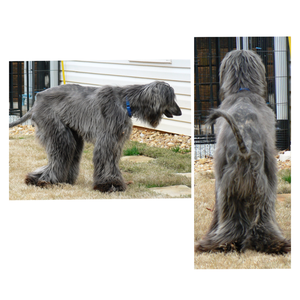Inborn Errors of Metabolism are a large group of inherited diseases that occur in both humans and dogs. These disorders are well defined in humans but far less understood and recognized in dogs. Individually, each of the inborn error of metabolism disorders is rare, but collectively they are an important and relatively common category of diseases in both man and dogs. In dogs these disorders are rarely considered by veterinarians as the possible cause to be studied when their patient is ill and failing. We recently told you the story of Rigel, a blue Afghan hound puppy who ultimately succumbed to one of the many known inborn error of metabolism disorders, mucopolysaccharidosis type 1. We also discussed that if it were not for one astute veterinarian (out of many veterinarians who evaluated Rigel and his similarly affected sister, Trudy) their condition would have gone undiagnosed and this previously unrecognized genetic disorder would have continued to go unidentified in this breed.
Cases like Rigel and Trudy’s raise an important question; how often are similarly "invisible" biochemical disorders occurring in dogs and going unrecognized and undiagnosed? Human and canine genetic research discoveries have illustrated repeatedly that ...









